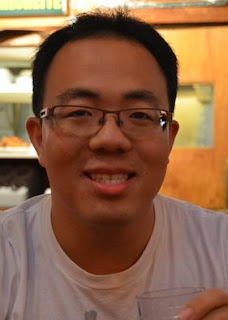
In 2008-09 I REBUILT my sister in law's house. Some parts required tearing out from the sills on up and the studs on in.
These days, I am RESTORING four kitchen chairs we have had for 20+ years. The finish was fading and peeling from exposure to the sunlight over many years.
I am also RENEWING our recently purchased condo which was probably last updated in the mid-80's.
Those three words are the words the prophet Isaiah used to describe the ministry God's people in Isaiah 61:4 where he writes that those who are delivered by the Lord's Servant will go on to
"…rebuild the ancient ruins
and restore the places long devastated;
they will renew the ruined cities
that have been devastated for generations.”
At the last Summer Fellowship gathering this past Friday, I shared with the group pictured here that this mission is one that we, along with all of God’s people, inherit as part of what it means to follow Christ. We are to use the resources, the education, the talents and the passions that we have to bring out the fullness and goodness of the places and institutions which we inhabit. That’s part of the even older calling of God to Abraham to be a people through whom “all the world will be blessed.”
As the school year resumes at Yale and other schools around the country, may this be the mindset with which Christian students, faculty, administrators and staff approach their work. We are not just to “use” this place for our own purposes. We are not to try to “escape” from this place because of the problems it has. We are not to “avoid” people here who are difficult for us. Instead, as Christians we are called to bless and be a blessing; we are called to contribute to the rebuilding, restoring and renewing of wherever we find ourselves.
What that means in our context and how we go about it is surely a matter of discernment and prayer and none of us will be able to do all that is needed. My examples above of rebuilding, restoring and renewing are all short range, clearly defined projects; the restoration of the world to reflect the glory of God is quite a bit more ambitious! But… we have a part to play; according to Isaiah, that’s the purpose of God’s people!
As we start a new academic year, let’s pray and work towards this end with the energy and insight that God’s spirit gives us.
Our God,
who blesses your people with the call
to rebuild what’s broken,
to restore what’s been lost, and
to renew what’s been ruined,
may we respond to your call,
turn from other loyalties and distractions, and
commit our energy, creativity, talents,
education and power
to your purposes in the world.
In the name of Christ we pray,
Amen.
This will be my last posting for a while. This summer was a time for reflection on the “why” of grad/faculty ministry; now is the time to put those reflections into action!


